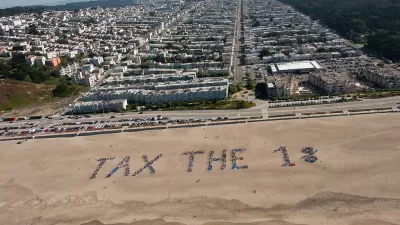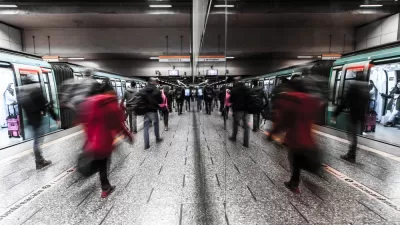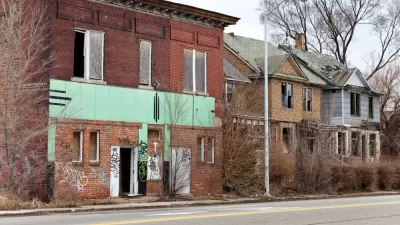Against a backdrop of increasing spatial segregation of incomes, Robert J. Sampson looks at how neighborhood inequality influences multiple aspects of everyday life. How we address such inequality indicates what kind of society we want to be.
"Fifty years after the Rev. Dr. Martin Luther King Jr. pointed to African-Americans on a 'lonely island of poverty in the midst of a vast ocean of material prosperity,' racial and economic disparities by place not only remain but are closely connected," writes Sampson, professor of the social sciences at Harvard University, in a commentary for The New York Times. "The great neighborhood divide extends to many of the fundamentals of well-being. Violence, poor physical health, teenage pregnancy, obesity, fear and dropping out of school are all unequally distributed."
"The persistent geography of inequality is reinforced by exclusionary zoning, persistent red lining, selective withdrawal of public services, the segregation of low-income public housing, 'stop and frisk' policing concentrated in minority areas, school funding tied to property values and the political fragmentation of metropolitan areas," he explains.
"The good news is that we are experimenting with a number of policies, some place-based and others person-based. Both are needed, but in either case the durability of poverty calls for profound long-term investments."
FULL STORY: Division Street, U.S.A.

Planetizen Federal Action Tracker
A weekly monitor of how Trump’s orders and actions are impacting planners and planning in America.

Chicago’s Ghost Rails
Just beneath the surface of the modern city lie the remnants of its expansive early 20th-century streetcar system.

San Antonio and Austin are Fusing Into one Massive Megaregion
The region spanning the two central Texas cities is growing fast, posing challenges for local infrastructure and water supplies.

Since Zion's Shuttles Went Electric “The Smog is Gone”
Visitors to Zion National Park can enjoy the canyon via the nation’s first fully electric park shuttle system.

Trump Distributing DOT Safety Funds at 1/10 Rate of Biden
Funds for Safe Streets and other transportation safety and equity programs are being held up by administrative reviews and conflicts with the Trump administration’s priorities.

German Cities Subsidize Taxis for Women Amid Wave of Violence
Free or low-cost taxi rides can help women navigate cities more safely, but critics say the programs don't address the root causes of violence against women.
Urban Design for Planners 1: Software Tools
This six-course series explores essential urban design concepts using open source software and equips planners with the tools they need to participate fully in the urban design process.
Planning for Universal Design
Learn the tools for implementing Universal Design in planning regulations.
planning NEXT
Appalachian Highlands Housing Partners
Mpact (founded as Rail~Volution)
City of Camden Redevelopment Agency
City of Astoria
City of Portland
City of Laramie





























